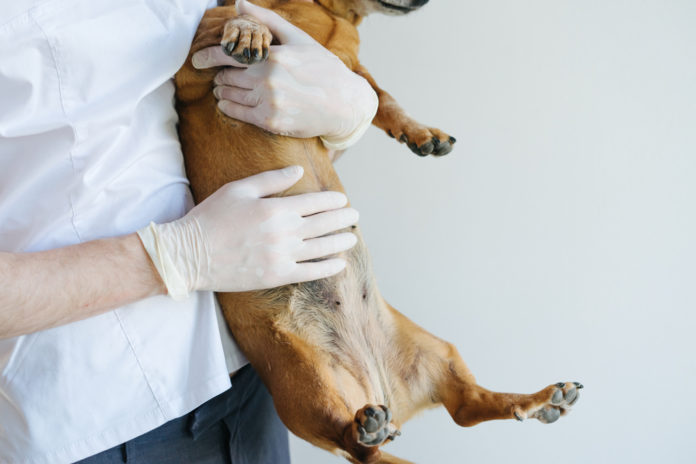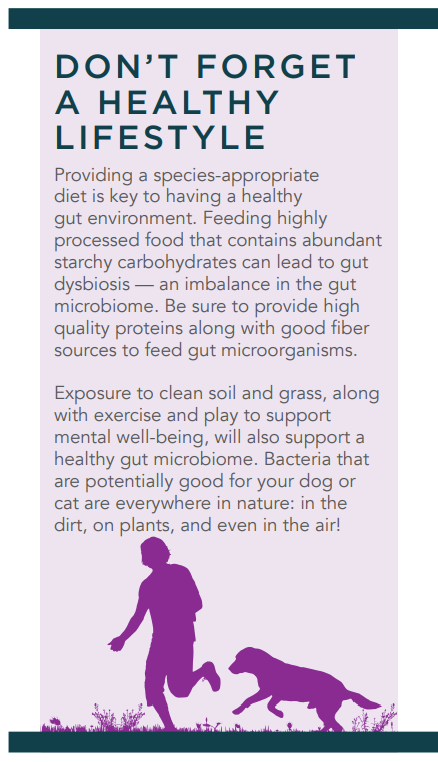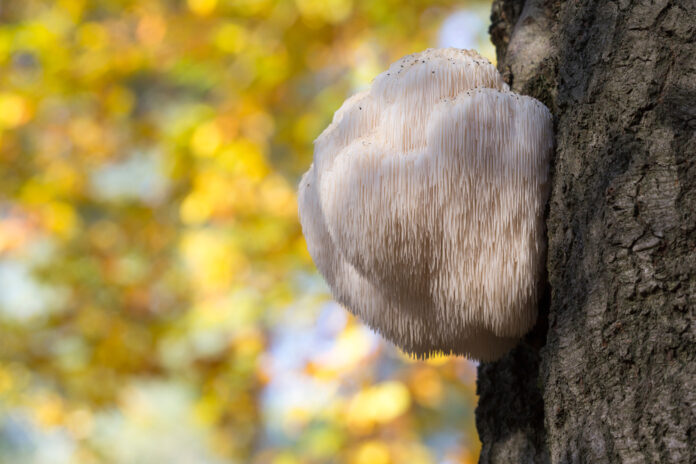Natural remedies for your dog or cat’s gut problems

From diarrhea to appetite loss, gut problems are common in dogs and cats. Here are some natural remedies that ease symptoms and help heal the digestive tract.
Gastrointestinal upset, chronic reflux or diarrhea, bloody stools, and inflammatory bowel disease. These are some of the most common gut health problems seen in veterinary offices and on social media sites for dog and cat care. Unfortunately, many animals suffer for months or years with chronic problems while their caregivers become more and more frustrated with the lack of solutions. Whether your dog or cat has occasional or ongoing issues, many natural remedies can help heal his gut and decrease symptoms.
Signs of gut problems
The gut partners with the immune system. When the gut is unhealthy, the immune system cannot function properly. More obvious signs of gut health disturbance can include loss of appetite, vomiting, diarrhea, bloody or mucoid stools, and weight loss.
What may be harder to diagnose is leaky gut syndrome. This problem occurs when the cells lining the digestive tract become inflamed and swollen. When these cells swell, the junctions between them open, allowing particles of undigested food, infectious organisms, chemicals, and toxins to enter the bloodstream from the bowels. This can lead to allergies, chronic ear infections, food sensitivities, autoimmune disease, behavior disorders, and chronic inflammation throughout the body.
/* custom css */
.tdi_15.td-a-rec{
text-align: center;
}.tdi_15 .td-element-style{
z-index: -1;
}.tdi_15.td-a-rec-img{
text-align: left;
}.tdi_15.td-a-rec-img img{
margin: 0 auto 0 0;
}@media (max-width: 767px) {
.tdi_15.td-a-rec-img {
text-align: center;
}
}
Fortunately, there are many things you can do to start repairing and rebuilding your dog or cat’s gut to improve his overall health.
 5 ways to boost gut health
5 ways to boost gut health
1. Probiotics
The normal microbiome (microbial population in the gut) consists of both good (beneficial) and bad (pathogenic) bacteria. In a healthy population, the good bacteria far outnumber the bad. Probiotics are the good bacteria that help fight off infection and inflammation. There are different species of probiotics for different species of animal. If your dog or cat does not respond to the probiotic you provide, try a different microbial population that might be more well-suited to his individual needs. Sometimes it requires some trial and error to find just the right combination. Some animals will respond better to soil-based probiotics.
2. Prebiotics
These are a type of fiber that act as food for the probiotics. The good bacteria would starve and die if they did not have a food source. Prebiotics include chicory, fructooligosaccarides (FOS), oligofructose, inulin, and larch arabinogalactan. Animals consuming plant-based diets rich in natural fibers and nondigestible oligosaccharides may not require additional prebiotics, but those consuming meat-based diets will generally benefit from prebiotics to help normalize their gut microbiome. Prebiotics may be fed to all dogs and cats, but may provide the greatest benefits to seniors, those receiving antibiotics, and animals that are obese or have diabetes.
 3. Digestive enzymes
3. Digestive enzymes
These enzymes are secreted by the salivary glands and the cells lining the stomach, pancreas, and small intestine. They break large molecules of protein (protease), carbohydrates (amylase) and fats (lipase) into small molecules that can be easily absorbed into the bloodstream and utilized by cells in the body. Digestive enzymes can be added through supplementation but are also found naturally in foods such as pineapple, papaya, fermented foods, and pancreas. Animals that may receive the most benefit from digestive enzymes include those suffering with EPI (exocrine pancreatic insufficiency), those with pancreatic damage from chronic pancreatitis, diabetics, and seniors
Digestive enzymes can be added through supplementation but are also found naturally in foods such as pineapple, papaya, fermented foods, and pancreas
4. Fecal transplants
Animals suffering from chronic diarrhea, antibiotic overuse, and poor diet can benefit from the transplantation of healthy gut contents from a healthy animal. A fecal transplant will provide a more diverse population of probiotics than a supplement can provide.
5. Amino acids
These can prevent and heal leaky gut, as well as influence the diversity and activity of bacteria found in the gut microbiome.
- Glutamine and N-acetyl cysteine (along with the help of zinc) have been found to help in reducing gut inflammation, restoring intestinal health, and repairing the tight junction integrity of the gut lining. Glutamine deficiency leads to destruction of the cells in the small intestine, mucosal ulcerations, and impaired function of the immune cells in the intestines, resulting in greater susceptibility to infections.
- Threonine is also important to gut barrier integrity.
- Glycine, which is utilized in the small intestine to synthesize the antioxidant glutathione, plays a protective role in intestinal immune and anti-oxidative responses.
If your dog or cat shows persistent or recurring signs of gut problems, be sure to have him checked over by a veterinarian to determine the root cause. Incorporating these natural remedies into his treatment regime will help him feel better again.
/* custom css */
.tdi_16.td-a-rec{
text-align: center;
}.tdi_16 .td-element-style{
z-index: -1;
}.tdi_16.td-a-rec-img{
text-align: left;
}.tdi_16.td-a-rec-img img{
margin: 0 auto 0 0;
}@media (max-width: 767px) {
.tdi_16.td-a-rec-img {
text-align: center;
}
}



